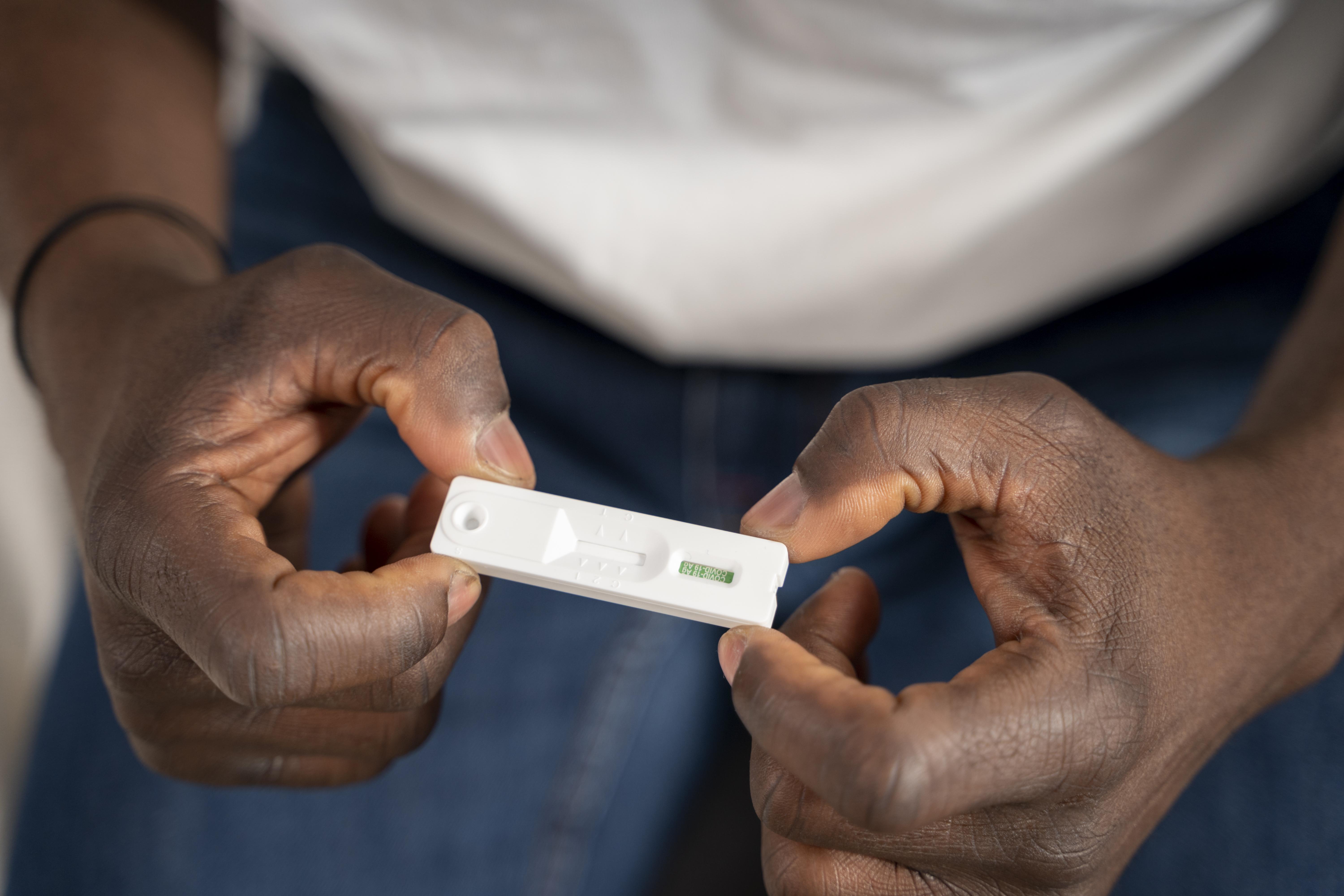When it comes to health, many young men are more likely to focus on building muscle or getting their cardio game in check. But there’s one area they often neglect—reproductive health. This topic might feel uncomfortable or even unnecessary for some men in their 20s and 30s, especially in a culture like Rwanda’s, where discussing reproductive health is not always common. Buttttt, staying on top of reproductive health can save you a lot of trouble down the road.
We often think of reproductive health issues as something that impacts older men, but the truth is, even young men are not immune to problems that can affect their fertility, sexual function, and overall well-being.
According to a report from the World Health Organization (WHO), infertility affects up to 15% of reproductive-aged couples worldwide, with men accounting for 40–50% of these cases. In Rwanda, fertility rates are high, but reproductive health services—especially for men—are still underutilized, largely due to stigma, lack of information, and limited access in some areas.
Let’s break down some common reproductive health issues young men should get checked out.
Erectile Dysfunction (ED)
Erectile dysfunction is often considered a problem of aging men, but research shows that up to 30% of men under the age of 40 experience it at some point. It’s not just about performance either; ED can be a sign of underlying health issues like cardiovascular disease or diabetes—both on the rise in Rwanda.
A study published in the Journal of Sexual Medicine found that young men with ED are at a higher risk of developing these chronic conditions later in life. In fact, erectile health can be a key indicator of overall cardiovascular health, so if you’re experiencing persistent issues, it’s worth getting checked. In Rwanda, with increasing rates of non-communicable diseases like diabetes, addressing ED early could prevent more serious health issues later on.
Prostate health
Prostate cancer is generally considered an issue for older men, but young men should still be aware of prostate health. Early detection and lifestyle changes can help mitigate the risks later in life. The Rwanda Cancer Relief organization has been working to raise awareness about prostate cancer, particularly encouraging men to engage in regular check-ups.
Male infertility
In Rwanda, family and community are central to society. So, when a couple struggles to conceive, it’s often assumed the issue lies with the woman, but that’s a myth. In reality, male infertility is just as likely a cause, affecting 1 in 6 couples globally.
Male infertility can be linked to several factors, including low sperm count, poor sperm motility, or abnormal sperm morphology. Environmental and lifestyle factors such as pesticide exposure, malnutrition, or untreated sexually transmitted infections (STIs) can contribute to infertility.
According to a study published by the National Institutes of Health, infertility is a growing issue in sub-Saharan Africa, with male factors often being overlooked.
Testicular cancer
While rare, testicular cancer is the most common cancer in men aged 15–35. The good news is that it’s one of the most treatable cancers, with a 95% survival rate when caught early. Testicular cancer doesn’t discriminate—it can happen to any man, regardless of lifestyle or background.
Routine self-examinations can help catch it early. Lumps, swelling, or pain in the testicles should never be ignored.
Sexually Transmitted Infections (STIs)
STIs remain a significant public health issue in Rwanda, particularly among young adults. The prevalence of HIV/AIDS is still a concern, with young men making up a significant portion of new infections. According to Rwanda Biomedical Center (RBC), the HIV prevalence among people aged 15–49 stands at 2.7%, with a higher concentration in urban areas.
But it’s not just HIV. Other STIs, such as chlamydia, gonorrhea, and syphilis, are rampant among sexually active men. Untreated STIs can lead to serious reproductive issues, including infertility and increased susceptibility to HIV infection. Regular STI screenings are vital if you’re sexually active, even if you feel fine. Many STIs are asymptomatic, meaning you could be infected without even knowing it.
Let’s face it, discussing reproductive health isn’t always easy, but talking openly about these issues is the first step toward taking control of your health. Clinics in Rwanda, particularly in urban areas like Kigali, are starting to offer more services targeted specifically at men’s reproductive health, and organizations such as Health Development Initiative (HDI) provide reproductive health services with an emphasis on youth.
While it’s tempting to brush these concerns under the rug, your reproductive health matters. So, if you’ve noticed something unusual, or it’s simply been a while since your last check-up, it’s time to take that step. Your future self will thank you!


